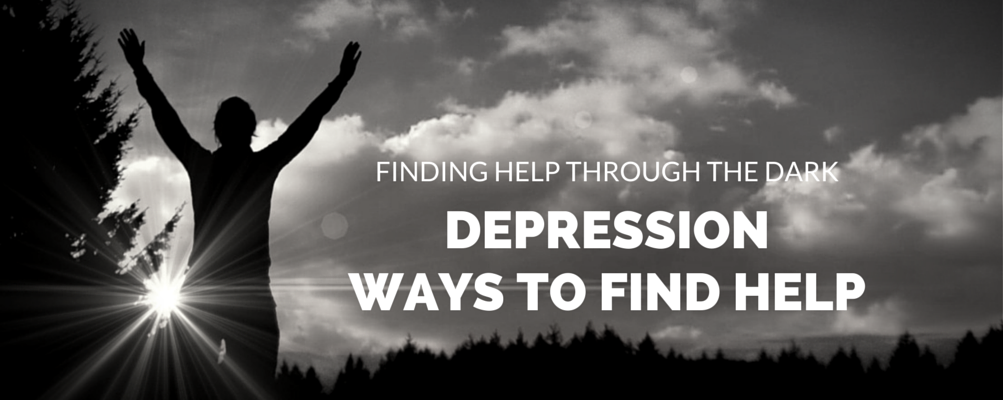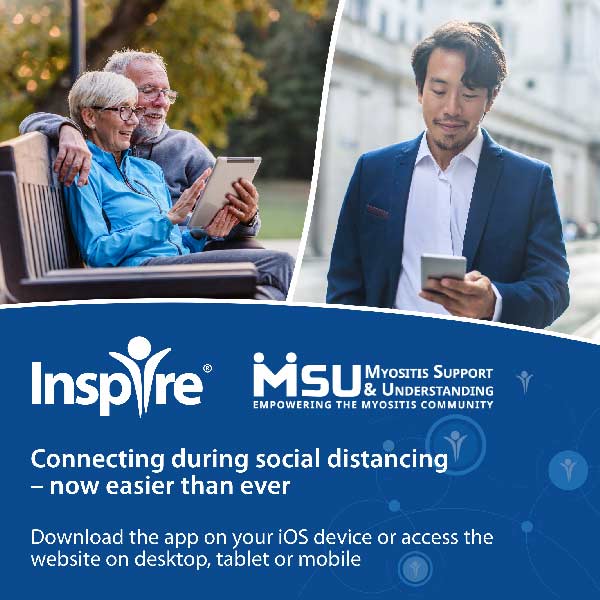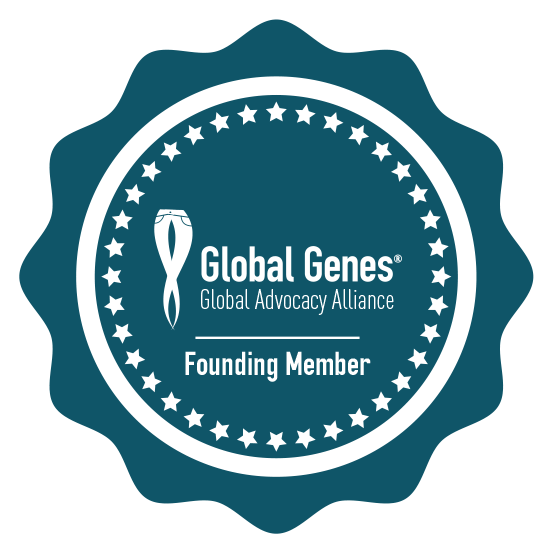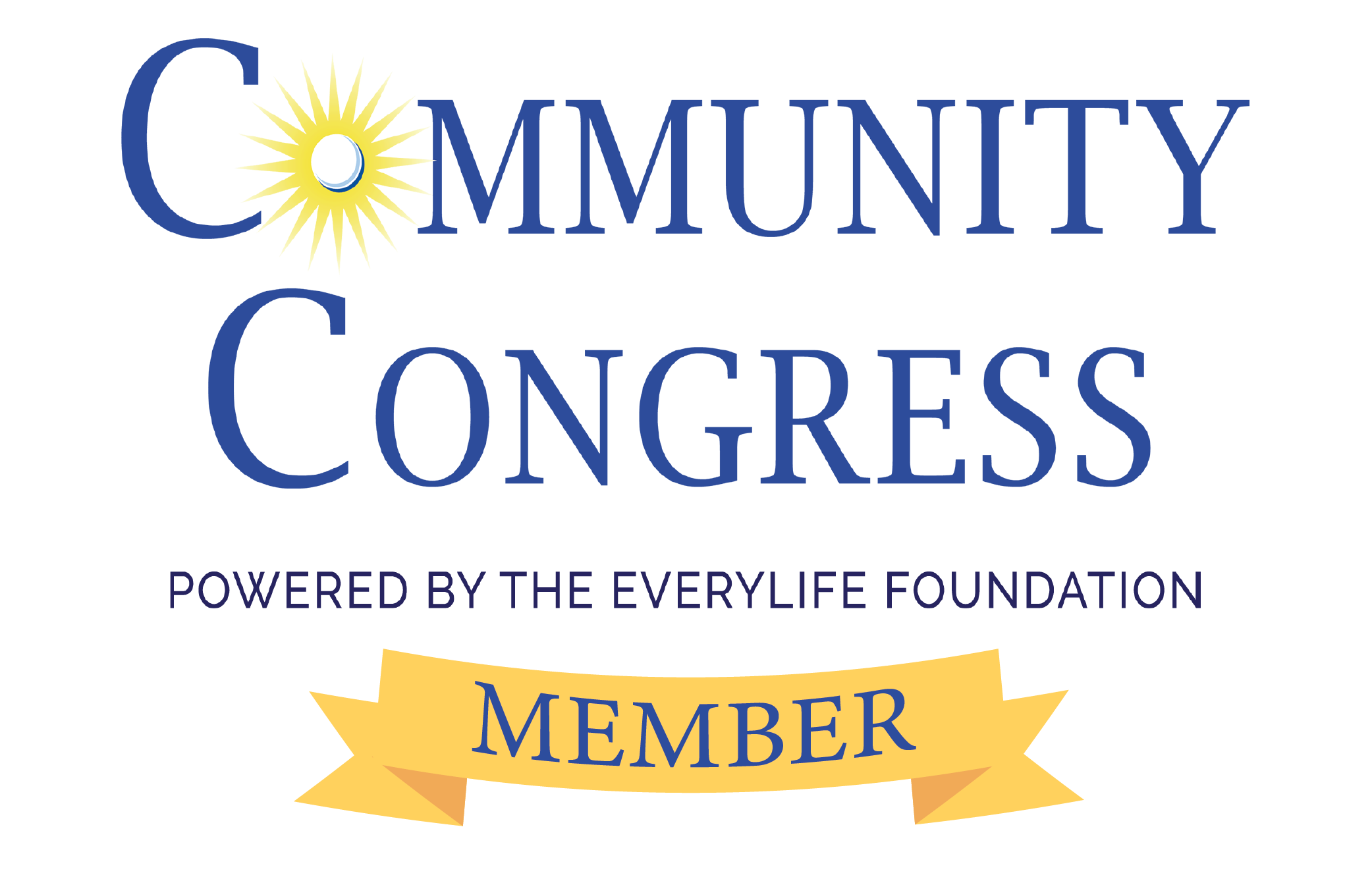Depression: Ways to find help
Author: Amber O’Connor & Sandy Block
There is a lot of loss and grief involved in the process of having Myositis, which involves acknowledging, dealing with, and accepting one’s limitations and challenges. The following thoughts and suggestions about dealing with depression — a frequent occurrence with chronic illness — were provided by Amber O’Connor.
Depression as a default coping position
Depression is one stage in the process of grief, and therefore completely “normal”, yet we still fear it … maybe because society has “trained” or conditioned us from about 4 years of age that “unpleasant” feelings have little place in our world.
Western cultures are getting better at handling grief, but we still have a long way to go in terms of self and other-acceptance of what we often call “negative feelings.” No feelings are “negative.” The actions which follow feelings can be “negative” in how they affect others and the consequences of the way they are played out. But feelings and emotions are simply energy with a particular “taste” to them. Some tastes are not so nice while others tastes are pleasant and are more appealing to be around. This is our societal conditioning at play!
DOING NOTHING
This represents passivity and is the opposite of taking charge of your life. To leave things as they are when you feel terribly uncomfortable and you lose sight of any purpose or meaning in life will ensure that you get a very predictable outcome of feeling both emotional and physical pain, which may or may not be soothed by meds and self-choice about lifestyle leading to misery, depression and isolation. A no-brainer, really!
EXPLORING YOUR FEELINGS
You can still come out the other side of depression with many feelings explored, therefore a changed and wiser you! Unfortunately we’ve been trained by society to fear emotions which have pain involved.
Unless we accept the feelings as just energy of differing tastes, we can’t accept the loss we also fear. Going through therapy and reaching out in some form will show you how to embrace your feelings and give them respect.
REACHING OUT FOR HELP
Part of “reaching out” is having 3-5 “lifelines” you can call on when you are really down. It’s like a safety net underneath the tightrope. Being open (with your thoughts and feelings), becoming articulate in expressing your thoughts and feelings, and knowing that you already have a degree of resilience, plus previous solutions from similar times in life, will get you out the other side of depression.
Ways to find help:
Psychiatrist
They will make a clinical diagnosis based on your presentation, your symptomatic behavior and language patterns and usually prescribe medication. They won’t usually want to talk about the small stuff.
Counseling/therapy
Therapists can be great sounding boards for current problems as well as issues you’ve been dealing with for years. The sheer self-indulgence of being able to talk things through and share some of my fears for the future is very freeing.
Please do “interview” a potential therapist and ask them about their discipline and style. The nature of the relationship you both form is a large part of the success of therapy.
And the real therapy (‘homework’) is done outside the therapy room where you put into practice what you cover in sessions.
Therapy groups
These are also wonderful so that others can share in person and you feel immediate support and understanding. You also get the physical contact and reality check.
Support groups
Some groups are attended in person (and we all know the success stories from the ‘XXX Anonymous’ 12-Step Programs around the world). Online support groups are another popular option because they offer instant and 24/7 support for and from people who are in a similar circumstance. We tend to like that immediacy and the feeling of intimacy from people who can identify with your particular circumstances.
Talking to a friend/family member
This may seem like “off-loading” or being a burden. You may “share” and find you don’t get back what you’d hoped for, and that’s possibly because the relationship is too close or the other person simply doesn’t understand.
Spiritual guidance
For many people with a chronic illness their faith in the process of life comes under question, and they find solace in seeking guidance about reaffirming that alliance and their personal faith. Whoever is chosen in this course of action does not need to know anything about your chronic illness, but lots about how to help you believe in yourself, the process, life itself and a higher power and connection.
FALLING OFF
And there will be days when you feel you’ve “failed” and “fallen off.” I invite you to reframe those words as they connote failure and no way forward.
“Falling off” can mean detouring from your purpose in life or it can mean taking the “scenic route” through life. Unless we figure what it’s all about (a new normal) and accept that this is the hand of cards I’ve been dealt so this is what I’ll do with them, then each day is meaningless and more about just getting through. That takes huge energy with no apparent reward or incremental progress to keep trying to cling to a slippery slope.
On the days we think we are “falling off,” why not change the patter in our head and choose to have an “off day” rather than seeing it as “falling off” which can feel like failure or weakness. Our self-talk determines how we feel. Choose the same outcome but with power over the decision. You will then stay “on track.”
Tags: depression mental health









